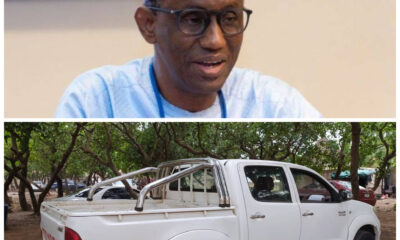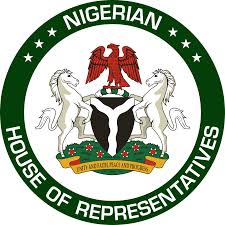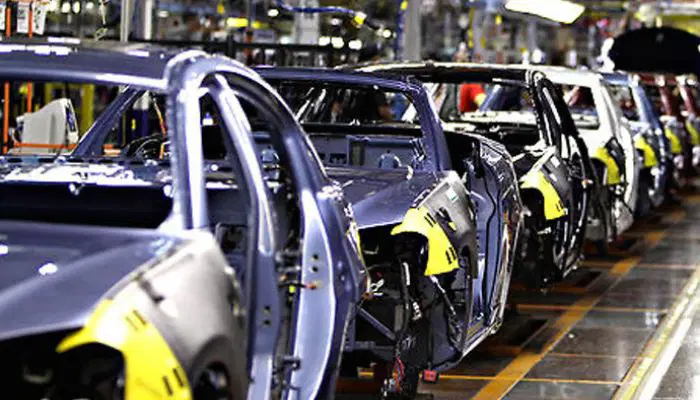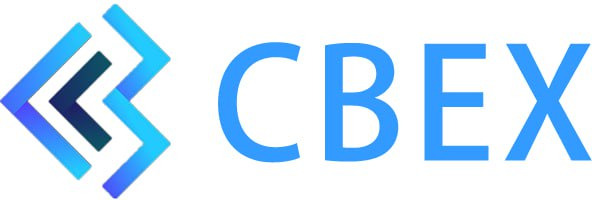Tech
Google wins legal bid to overturn 1.5 billion euro antitrust fine in EU digital ad case
Published
7 months agoon
By
Ekwutos BlogLONDON (AP) — Google won a court challenge on Wednesday against a 1.49 billion euro ($1.66 billion) European Union antitrust fine imposed five years ago that targeted its online advertising business.
The EU’s General Court said it was throwing out the 2019 penalty imposed by the European Commission, which is the 27-nation bloc’s top antitrust enforcer.
“The General Court annuls the Commission’s decision in its entirety,” the court said in a press release.
The commission’s ruling applied to a narrow portion of Google’s ad business: ads that the U.S. tech giant sold next to Google search results on third-party websites.
Regulators had accused Google of inserting exclusivity clauses in its contracts that barred these websites from running similarly placed ads sold by Google’s rivals. The commission said when it issued the penalty that Google’s behavior resulted in advertisers and website owners having less choice and likely facing higher prices that would be passed on to consumers.
But the General Court said the commission “committed errors” when it assessed those clauses. The commission failed to demonstrate that Google’s contracts deterred innovation, harmed consumers or helped the company hold on to and strengthen its dominant position in national online search advertising markets, it said.
The ruling can be appealed, but only on points of law, to the Court of Justice, the bloc’s top court.
The commission said in a brief statement that it “will carefully study the judgment and reflect on possible next steps.”
Google did not respond immediately to a request for comment. The company’s legal victory comes a week after it lost a final challenge against a separate EU antitrust case for its shopping comparison service that also involved a hefty fine.
They were among three antitrust penalties totaling about 8 billion euros ($8.9 billion) that the commission punished Google with in the previous decade. The penalties marked the beginning of an era of intensifying scrutiny for Big Tech companies.
Since then, Google has faced escalating pressure on both sides of the Atlantic over its digital ad business. It’s currently battling the Justice Department in a U.S. federal court over allegations that its dominance over the technology that controls the sale of billions of internet display ads constitutes an illegal monopoly.
British competition regulators this month accused the company of abusing its dominance in the country’s digital ad market and giving preference to its own services.
EU antitrust enforcers carrying out their own investigation suggested last year that breaking up the company was the only way to satisfy competition concerns about its digital ad business.
You may like


Nothing new to reveal – Presidency reacts to US court order on Tinubu’s records


Gov Nwifuru didn’t sign any agreement to relinquish power in 2027- Ebonyi APC


FACT CHECK: No Office of the NSA Vehicle Was Stolen


House of Representatives Forms 19-Member Ad-Hoc Committee to Oversee Rivers State Amid Political Crisis


Van Dijk’s Late Winner Edges Liverpool Towards Premier League Title


Kaduna: Gov Uba Sani is Tinubu’s trusted son – Umahi

By Adegboyega Adeleye
The importance of cars in transportation cannot be overemphasised with some countries known for their production.
Transportation is required for work, school, and industry, with car production fast becoming a major producer of revenue and a player in the global was financial market.
Car production is one of the largest economic sectors internationally; however, some countries produce more cars than others. The list of countries by motor vehicle production is based on statistics by the International Organization of Motor Vehicle Manufacturers.
The world’s car manufacturers put another 93.5 million vehicles on the roads in 2023, the last full-year numbers currently available.
This article will explore the top 5 countries with the highest car production.
1. China
China, the world’s biggest manufacturer overall, leads the world in car production. The country’s 2023 production totaled more than 30 million vehicles, adding up to more than 30% of all cars and trucks produced globally.
The largest domestic car manufacturers in China, known as the traditional “Big Four,” are SAIC Motor, Dongfeng, FAW, and Chang’an.
2. United States
The United States–a major automotive producer, known for its large vehicle market–is the second biggest auto manufacturing country with a volume of 10,611,555. This represents about 5.5 percent growth compared to the 10,060,339 produced in 2022.
The United States produces less than half of what China does, having manufactured about 1.8 million cars and 8.3 million commercial vehicles in 2022. The United States’ largest car manufacturers, referred to as the “Big Three,” are General Motors, Ford Motor Company, and Fiat Chrysler.
3. Japan
Japan ranked as the third biggest automobile-producing country in the world with a total volume of 8,997,440 vehicles manufactured in 2023. The country is a significant player in the global automotive industry, known for its engineering and quality.
After a sudden drop in production from 2020-2022 due to the COVID-19 pandemic, Japan produced just under 9 million vehicles in 2023 (8,997,440)–a drop from its pre-COVID total of nearly 9.7 million in 2019.
However, the volume grew by 14.8 percent compared to the 7,835,519 produced in 2022.
Japan’s automotive industry is one of the largest industries in the world. The country’s automotive manufacturers include Toyota, Honda, Daihatsu, Nissan, Suzuki, Mazda, Mitsubishi, Subaru, Isuzu, etc.
4. India
India is the fourth-largest automobile-producing country in the world with a total number of 5,851,507 manufactured in 2023. The volume of vehicles grew by 7.2 percent compared to 5,456,857 vehicles produced in 2022.
Although, India is not renowned in America or Europe as a vehicle manufacturer, the Asian nation produced 5.8 million cars in 2023– an annual increase of 7%. India’s export markets for vehicles include Saudi Arabia, South Africa, and Mexico.
The nation is rapidly growing as an automotive market and producer.
5. South Korea
South Korea is the fifth-largest auto-producing country in the world. The country manufactured a total of 4,244,000 vehicles in 2023, representing a growth of 13 percent from a total of 3,757,049 vehicles produced in 2022.
The major South Korean automobile manufacturers include GM Korea, Hyundai Motor Group and its affiliate, Kia Corporation along with Renault Korea Motors.
Tech
A lot of people don’t know this but do you know that all your internet connections and services are powered by Glo, not all but majority is powered by an under see cable called GLO1 THAT’S owned by Glo1.
Published
13 hours agoon
April 13, 2025By
Ekwutos Blog
Now because they make more money from this than selling as retailers that’s why they don’t care about their ISP SERVICE in retail quantities.
It’s like a bakery, they are most focused on selling to bulk buyers than single house hold user’s.
So you MTN, GLO AND ALL THAT are mostly connected to GLO1 even banks and may other platforms.
Ok let me break everything down.
1. Glo’s GLO-1 Cable:
GLO-1 is a private submarine cable owned by Globacom. It stretches from Nigeria to the UK and connects several West African countries. It was Nigeria’s first privately owned international submarine cable, launched around 2010.
Key Facts about GLO-1:
• Length: Over 10,000 km.
• Capacity: Designed for up to 2.5 Tbps.
• Landfall points: UK, Portugal, Senegal, Côte d’Ivoire, Ghana, and Nigeria.
• Purpose: Meant to reduce dependence on SAT-3 and provide high-speed internet capacity.
⸻
2. Why Glo May Not Focus Heavily on Retail ISP Services:
Glo essentially plays two roles:
• Infrastructure owner (wholesaler)
• Internet provider (retailer)
The wholesaling of the GLO-1 cable (and other bandwidth infrastructure) can be significantly more profitable and less stressful than managing millions of data subscribers in Nigeria with high expectations and poor last-mile infrastructure.
So yes:
Glo likely focuses more on selling bulk bandwidth to big clients than pleasing end users.
⸻
3. Who Are Glo’s GLO-1 Subscribers (Wholesale Clients)?
These can include:
• Telecom companies: ISPs, other mobile network operators.
• Banks and financial institutions.
• Tech companies and data centers.
• Government institutions.
• Educational institutions (for broadband research/academic access).
• CDNs and enterprise clients (e.g., Netflix, Google, Meta might use transit partners who tap into GLO-1).
4. How Many Submarine Cables Does Glo Own?
• Only One: GLO-1 is the only submarine cable Globacom directly owns.
• However, Glo might lease or partner to access others like:
• SAT-3 (older system, via NITEL/NTEL)
• ACE, WACS (via partnerships or regional consortiums)
So , Glo’s focus on being a wholesale bandwidth provider through GLO-1 might be one reason why their retail ISP service suffers in terms of customer satisfaction. They’re likely making more consistent revenue selling to institutions, ISPs, and data centers than from individual subscribers who demand high-quality, stable data service — which requires serious investment in towers, backhaul, and customer service
Copyright of Isaac Rocks Adeiza (Original Owner must be tagged to any Redistributions of content)
Content can’t not be redistributed for profit purposes.

Some users of CBEX, a digital asset trading platform, have dismissed trending reports that it has crashed.
This comes amid concerns over the operations of the platform, with some users warning that it showed signs of being a Ponzi scheme.
Our correspondent gathered that there are growing concerns about the platform’s stability, with many users fearing that their money is now stuck.
While some warned that CBEX could be a potential Ponzi scheme on the brink of collapse, others continued to defend the platform, insisting it remained a legitimate operation.
An X user, Viktor Benson (@viktorbensonyt), claimed that some users had been logged out of their accounts and might not be able to retrieve their money.
The post read, “You need to go to the platform to download the app and you tell yourself that platform is legit. Now you have put money and the website has crashed, and you can’t withdraw. Although people are saying that it is a temporary issue and I like being optimistic that by Monday one will be able to withdraw. Let us wait till Monday; hopefully, you can withdraw your money.”
Meanwhile, another X user, @BlessedAjoke, countered the crash claims, saying, “CBEX is still working perfectly, just that you can’t withdraw until the 15th of April. You people should stop spreading fake news. Stop giving people heart attacks nah.”
Another user, @0kparam, criticised those celebrating the platform’s possible collapse.
“Y’all are acting like CBEX crashing makes you financial sages. Nah, it just makes you bitter haters… Ponzi, yen yen yen. Just stfu, coward,” he wrote.
Speaking to Sunday Ekwutos, three other users confirmed that the platform was still functioning, although withdrawals were currently not possible due to the platform’s rules and regulations.
One of the users, Sodiq Dayo, said he was still actively trading on the platform and noted that the issue with withdrawals would be resolved by Tuesday.
“The platform is still working. The reason why the withdrawal is not functioning at the moment is because of some rules and regulations of the platform, and this will be resolved by Tuesday,” he said.
Another CBEX user, Alli Lanre, stated that as long as users could access the platform, there was no issue.
He advised users not to worry or develop hypertension over rumours of the platform’s crash.
Gbenga Adeboye, another user, expressed both optimism and pessimism, saying, “Basically, no one can withdraw unless the trading volume is completed. However, they promised the whole issue would be over by the 15th.”
Reacting to the issue, a financial expert, Aliyu Ilias, noted a regulatory gap in monitoring online financial businesses in Nigeria.
He stressed the need for continuous oversight from the National Information Technology Development Agency and the Central Bank of Nigeria to discourage unclear financial investments, whether Ponzi schemes or otherwise.
Ilias said, “Nigerians should be cautious of quick-income platforms that could crash at any point in time. The government has a responsibility to fish out the sponsors of these Ponzi platforms, even if they are operating in the cloud.”
A cryptocurrency expert, Kayode Olagunju, also emphasised that Ponzi schemes like CBEX should not be encouraged in the country.
He added that it was shameful that Nigerians continue to fall victim to scams despite the education and warnings provided by crypto experts.
“It is a slap in the face of intellectuals who have written so many articles and guides to help people with zero knowledge about cryptocurrencies. Crypto is vast; it is in the same class as the stock market,” he said.
Checks by our correspondent on the official website of the trading platform revealed that it remained accessible.
However, messages sent by Sunday Ekwutos to the email address listed on the CBEX website were undeliverable at the time of filing this report.

Nothing new to reveal – Presidency reacts to US court order on Tinubu’s records

Gov Nwifuru didn’t sign any agreement to relinquish power in 2027- Ebonyi APC

FACT CHECK: No Office of the NSA Vehicle Was Stolen
Trending

 Trending6 months ago
Trending6 months agoNYA demands release of ‘abducted’ Imo chairman, preaches good governance
- Business6 months ago
US court acquits Air Peace boss, slams Mayfield $4000 fine

 Politics6 months ago
Politics6 months agoMexico’s new president causes concern just weeks before the US elections
- Entertainment6 months ago
Bobrisky transferred from Immigration to FCID, spends night behind bars
- Entertainment6 months ago
Bobrisky falls ill in police custody, rushed to hospital

 Politics6 months ago
Politics6 months agoRussia bans imports of agro-products from Kazakhstan after refusal to join BRICS

 Politics6 months ago
Politics6 months agoPutin invites 20 world leaders
- Politics1 year ago
Nigerian Senate passes Bill seeking the establishment of the South East Development Commission.

